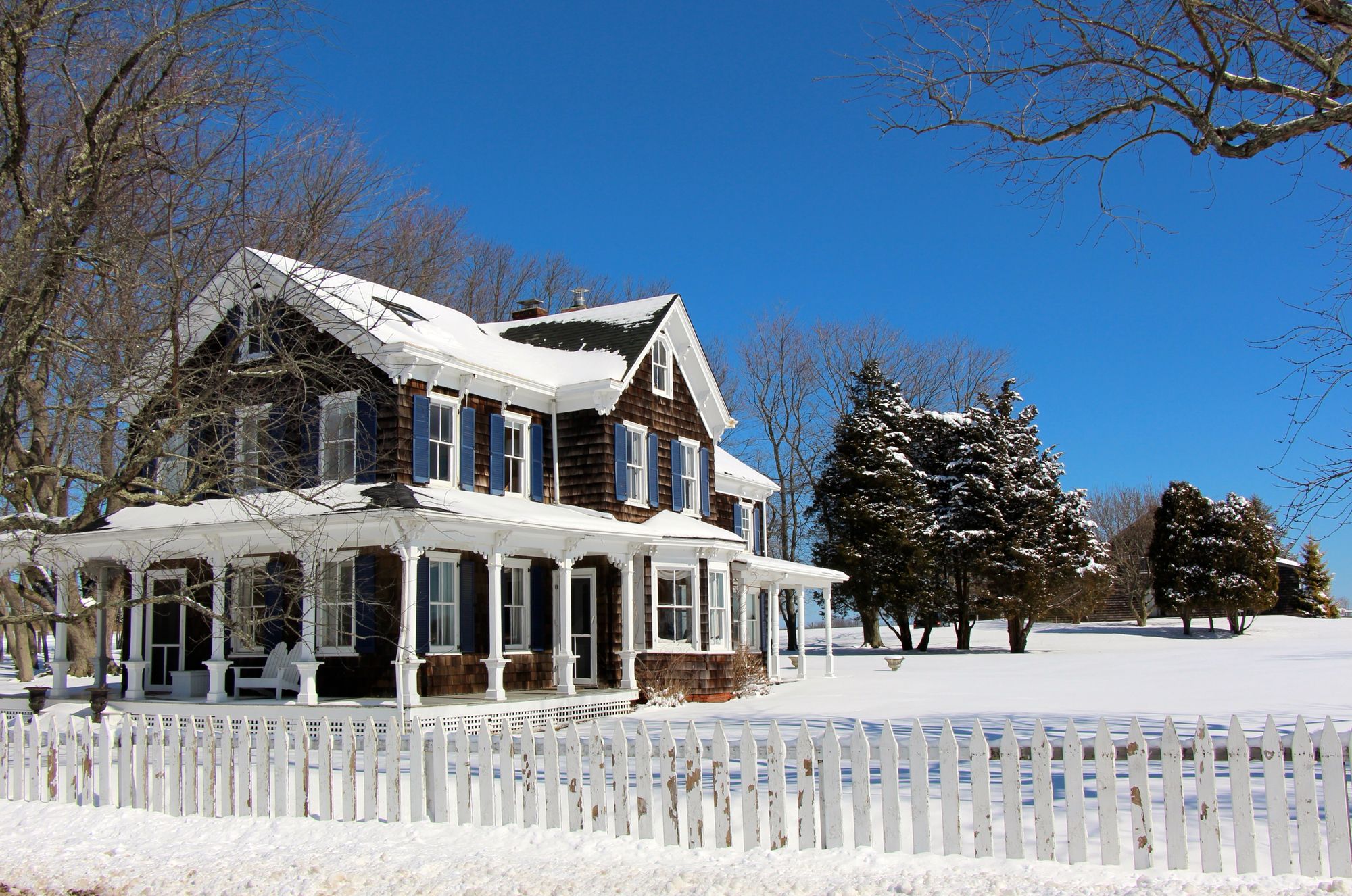Tips to Protect Your Home from Winter Weather
Ice, snow, and wind can greatly impact your home inside and out. These tips can help.
Dayton Ritz + Osborne is here to help you plan for any situation.
Ice, snow, and wind can wreak havoc on your home, but there are precautions you can take to avoid winter damage. The leaves changing color—around mid-October—is a good indication that it’s time to prepare for harsher weather and gives you enough time to secure your home against the potential ravages of winter.
How Do I Protect My Home?
Heavy snow, damaging ice accumulations, heavy lake-effect snow, blizzards, extreme winds, and sleet are just a few weather conditions that can concern any homeowner. So, what can you do to protect your home?
Protection Starts from the Outside: 5 Tips
- Remove tree branches near your home and property. Winter weather causes tree branches (weak or dead) to snap, causing damage to your home, car, or property.
- Clean your gutters and install gutter guards. Water can become trapped, causing it to seep into your home and damage the interior. Remove leaves, sticks, and other debris and install gutters to prevent potential damage.
- Have your roof inspected. It is important to have your roof inspected for leaks and structural integrity. Heavy weight from snow accumulation can cause your roof to sag, leading to water, snow and ice to build-up, which can cause leaks.
- Repair steps and handrails. Snow-covered, broken, or exposed stairs and handrails can cause serious injury. Repair any points of support to make sure they’re strong and sturdy.
- Install caulk and weather stripping around windows and doors. This prevents warm air from leaking out and cold air from blowing in.
Moving Inside: 10 Tips
- Have your heating system serviced. Furnaces, boilers, and chimneys should be serviced at least once a year to prevent fire and smoke damage related to potential breakdowns, lack of maintenance, contaminant build-up, etc.
- Add extra insulation to attics, basements, and crawl spaces. Adding extra insulation in these areas can prevent heat from escaping, which can lead to melting ice—potentially creating leaks in your roof and walls.
- Check pipes closely for cracks and leaks. Be on the lookout for wall discoloration, bubbling paint, or consistent dripping sounds. This can mean a pipe is leaking—you should repair any compromised pipe immediately.
- Protect pipes in attics and crawl spaces. Be sure UL-listed heating cables are used for your built-in thermostats; these will turn the heat on when temperatures drop to freezing levels.
- Make sure your plumbing system has an emergency pressure release valve. This will protect the system against increased pressure caused by freezing pipes and can help prevent your pipes from bursting.
- Check smoke and carbon monoxide detectors. Residential fires and carbon monoxide poisonings increase in the winter due to closed environments.
- Know where your pipes are located and how to shut the water off. If your pipes freeze, speed is critical. The quicker you shut off the water or direct your plumber to the problem, the better your chances of preventing major damage.
- Hire a licensed contractor to look for structural damage. If damage is found, such as a serious crack in your foundation, have all necessary repairs performed as soon as possible.
- Take steps to prevent flooding. Your licensed contractor can also advise you about measures to prevent flooding due to melting snow and ice runoff. Solutions include plastic coatings for internal basement walls, installing sump pumps, and checking valves in sewer traps.
- Provide a reliable backup power source. Purchasing a portable power generator provides continuous power in the event of an outage, keeping you warm and helping prevent frozen pipes.
Through our extensive network of providers, Dayton Ritz + Osborne is here to provide you with access to the right homeowner’s coverage and level of protection for your personal needs. Let a qualified DRO insurance broker assist you with any questions and help connect you with the best coverage options.
For more information on our policies, call us at 631-324-0420 or contact us today.
Disclaimer
The above description provides a brief overview of the term and phrases used within the insurance industry. These definitions are not applicable in all states or for all insurance and financial products. This is not an insurance contract. Other terms, conditions and exclusions apply. Please read your official policy or full details about coverage. These definitions do not alter or modify the terms of any insurance contract. If there is any conflict between these definitions and the provisions of the applicable insurance policy, the terms of the policy control.
